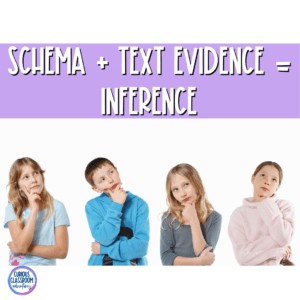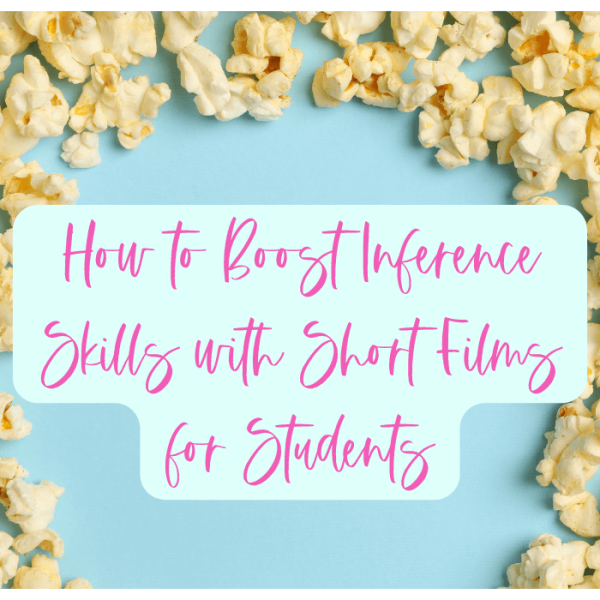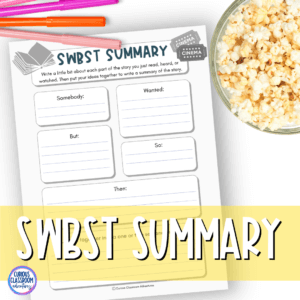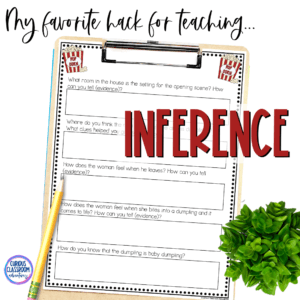Do your students need a little help with inference and summary skills? If so, you might want to try using short animated films in your classroom. Animated films are a great way to get students engaged and motivated to learn. In this blog post, we will discuss how teachers can use short animated films to help their students improve inference and summary skills. We will also provide a list of some of our favorite animated short films that are perfect for teaching these skills!
Understanding Inference Skills
An inference is an idea or conclusion that’s drawn from evidence and reasoning. An inference is an educated guess. We use the background knowledge of our unique experiences and our activities in everyday life to help us draw conclusions. This background knowledge is called “schema”. The other part that helps us is the evidence from the text. This includes what the text says as well as any pictures that accompany the text. For our lessons using shorts, we will be focusing on using evidence from the moving pictures.

Understanding Summary Skills
A good summary of a story includes the main idea and the most important details. It should not include irrelevant information or minor details. Teaching students to summarize improves their memory of what was read. There are a couple of different strategies to help students think about summarization.
-BME:
Have students record the most important idea from the beginning, the most important idea from the middle, and the most important idea from the end, then finish it up with the ”big idea” that encompasses the message, or theme, of the story.
-SWBST:
Somebody: Who is the main character(s)?
Wanted: What did they want or what were they trying to accomplish?
But: What problem (conflict) got in the way of getting what they wanted?
So: What actions did the characters take to try to solve the problem?
Then: How was the problem finally solved (resolution)?
Try out this summary strategy with a free download!
Using Short Films to Practice Summary and Inference Skills
Animated short films are a great way for students to practice both of these important reading skills. Animated shorts are crazy-high interest meter for elementary students and even though they are only a few minutes long the storylines are deep and rich! Here’s how it works:
Step-by-Step Inference Skills Practice:
- Find a favorite short film by Pixar on Disney+ or YouTube. If you are using Disney+, don’t read the trailer so that you don’t give away any inferences or summary information.
- Watch the short and generate a list of inference-focused questions. If you’d rather have done-for-you questions you can find those here.
- Let your class watch the short all the way through one time without writing anything down…just watch it for the joy of the story.
- Watch it a second time with the “pause” button close by. Read the first question and when students find the answer in the short, pause the video and let them record their answers. Continue this pattern of reading a question, watching the video, pausing, and recording until your class has worked their way through all the questions. Since there are no words to tell you what actions are taking place, how the characters are feeling, or what they are thinking, students will have to infer by looking at the expressions on the characters’ faces and paying attention to the actions around them.
- At the end of the lesson have students write a summary of the animated short film using one of the frameworks above.

Check out this top 10 list of my favorite animated short films by Pixar. They are perfect for teaching summary and inference skills:
- Presto
- La Luna
- Lifted
- For the Birds
- LOU
- Partly Cloudy
- Piper
- Bao
- Sanjay’s Super Team
- The Blue Umbrella
I hope you enjoyed this blog post! If you have any questions, please feel free to contact me. We would love to hear how your lesson turned out. For more reading resources, visit the ELAR page of this website.
P.S. You can learn more about inference skills in this blog post on improving critical thinking skills.




One Response